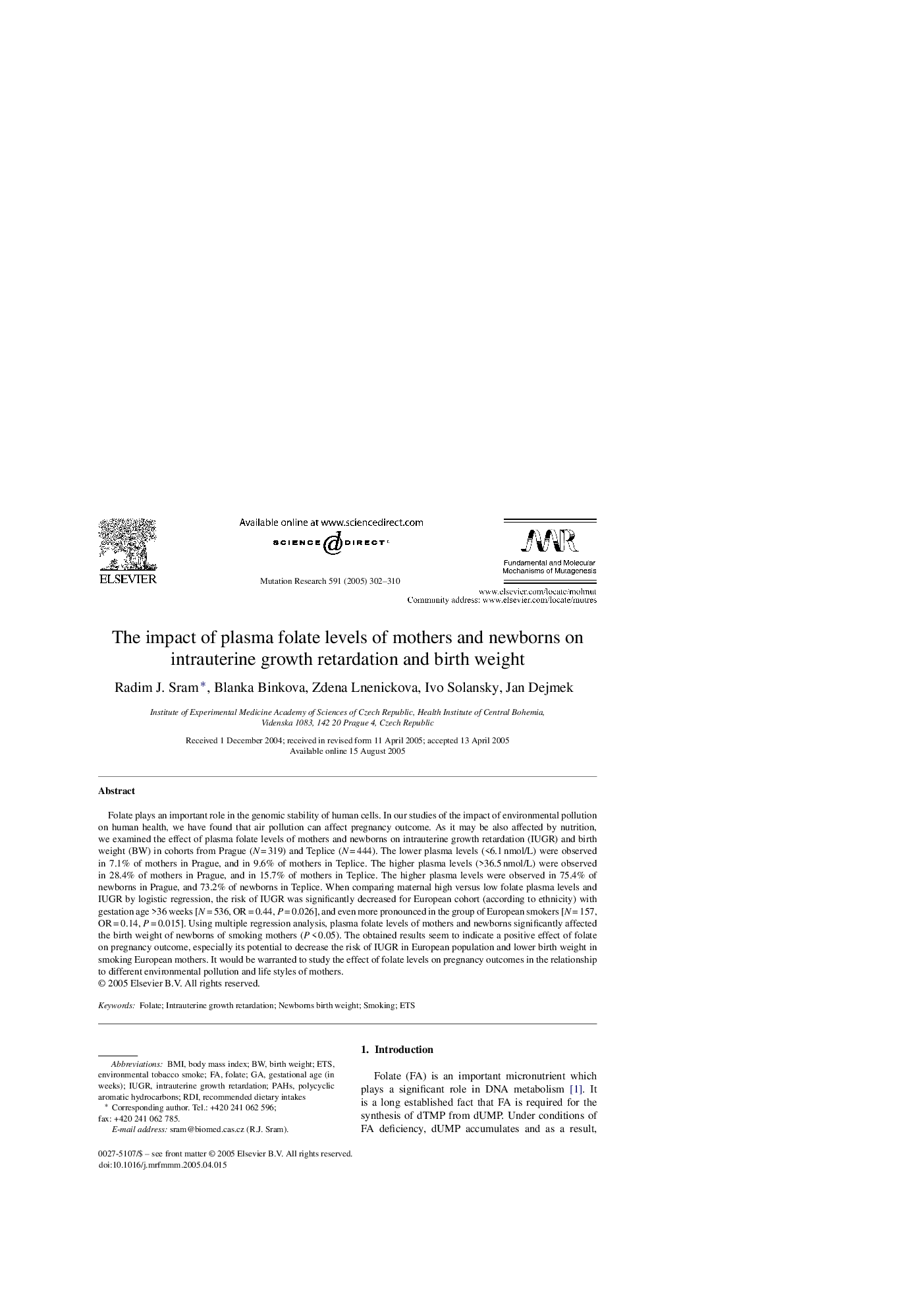| Article ID | Journal | Published Year | Pages | File Type |
|---|---|---|---|---|
| 9908980 | Mutation Research/Fundamental and Molecular Mechanisms of Mutagenesis | 2005 | 9 Pages |
Abstract
Folate plays an important role in the genomic stability of human cells. In our studies of the impact of environmental pollution on human health, we have found that air pollution can affect pregnancy outcome. As it may be also affected by nutrition, we examined the effect of plasma folate levels of mothers and newborns on intrauterine growth retardation (IUGR) and birth weight (BW) in cohorts from Prague (NÂ =Â 319) and Teplice (NÂ =Â 444). The lower plasma levels (<6.1Â nmol/L) were observed in 7.1% of mothers in Prague, and in 9.6% of mothers in Teplice. The higher plasma levels (>36.5Â nmol/L) were observed in 28.4% of mothers in Prague, and in 15.7% of mothers in Teplice. The higher plasma levels were observed in 75.4% of newborns in Prague, and 73.2% of newborns in Teplice. When comparing maternal high versus low folate plasma levels and IUGR by logistic regression, the risk of IUGR was significantly decreased for European cohort (according to ethnicity) with gestation age >36 weeks [NÂ =Â 536, ORÂ =Â 0.44, PÂ =Â 0.026], and even more pronounced in the group of European smokers [NÂ =Â 157, ORÂ =Â 0.14, PÂ =Â 0.015]. Using multiple regression analysis, plasma folate levels of mothers and newborns significantly affected the birth weight of newborns of smoking mothers (PÂ <Â 0.05). The obtained results seem to indicate a positive effect of folate on pregnancy outcome, especially its potential to decrease the risk of IUGR in European population and lower birth weight in smoking European mothers. It would be warranted to study the effect of folate levels on pregnancy outcomes in the relationship to different environmental pollution and life styles of mothers.
Keywords
Related Topics
Life Sciences
Biochemistry, Genetics and Molecular Biology
Cancer Research
Authors
Radim J. Sram, Blanka Binkova, Zdena Lnenickova, Ivo Solansky, Jan Dejmek,
